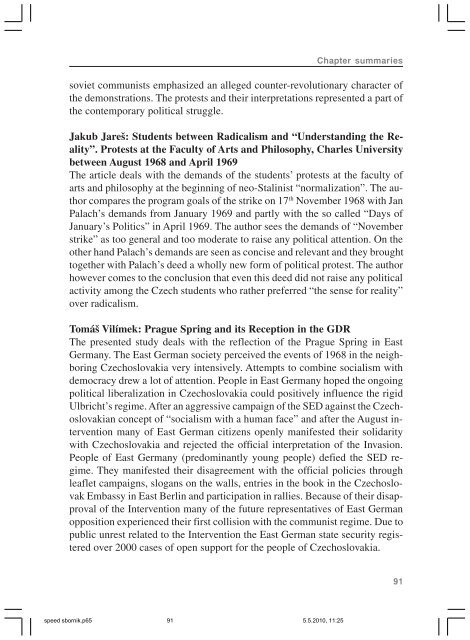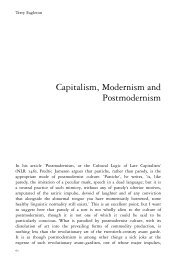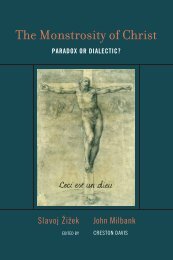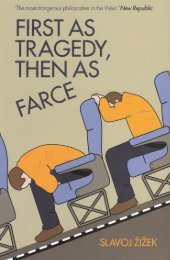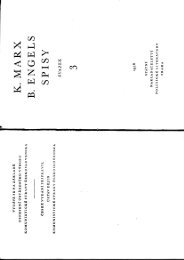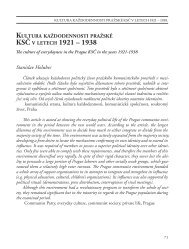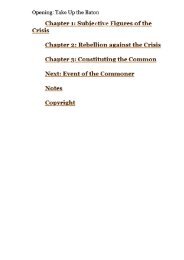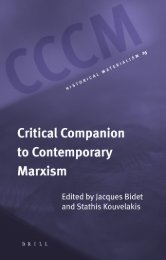Martin Franc-Stanislav Holubec (eds.): MladÃ, levice a rok 1968 - SOK
Martin Franc-Stanislav Holubec (eds.): MladÃ, levice a rok 1968 - SOK
Martin Franc-Stanislav Holubec (eds.): MladÃ, levice a rok 1968 - SOK
Create successful ePaper yourself
Turn your PDF publications into a flip-book with our unique Google optimized e-Paper software.
Chapter summariessoviet communists emphasized an alleged counter-revolutionary character ofthe demonstrations. The protests and their interpretations represented a part ofthe contemporary political struggle.Jakub Jareš: Students between Radicalism and “Understanding the Reality”.Protests at the Faculty of Arts and Philosophy, Charles Universitybetween August <strong>1968</strong> and April 1969The article deals with the demands of the students’ protests at the faculty ofarts and philosophy at the beginning of neo-Stalinist “normalization”. The authorcompares the program goals of the strike on 17 th November <strong>1968</strong> with JanPalach’s demands from January 1969 and partly with the so called “Days ofJanuary’s Politics” in April 1969. The author sees the demands of “Novemberstrike” as too general and too moderate to raise any political attention. On theother hand Palach’s demands are seen as concise and relevant and they broughttogether with Palach’s deed a wholly new form of political protest. The authorhowever comes to the conclusion that even this deed did not raise any politicalactivity among the Czech students who rather preferred “the sense for reality”over radicalism.Tomáš Vilímek: Prague Spring and its Reception in the GDRThe presented study deals with the reflection of the Prague Spring in EastGermany. The East German society perceived the events of <strong>1968</strong> in the neighboringCzechoslovakia very intensively. Attempts to combine socialism withdemocracy drew a lot of attention. People in East Germany hoped the ongoingpolitical liberalization in Czechoslovakia could positively influence the rigidUlbricht’s regime. After an aggressive campaign of the SED against the Czechoslovakianconcept of “socialism with a human face” and after the August interventionmany of East German citizens openly manifested their solidaritywith Czechoslovakia and rejected the official interpretation of the Invasion.People of East Germany (predominantly young people) defied the SED regime.They manifested their disagreement with the official policies throughleaflet campaigns, slogans on the walls, entries in the book in the CzechoslovakEmbassy in East Berlin and participation in rallies. Because of their disapprovalof the Intervention many of the future representatives of East Germanopposition experienced their first collision with the communist regime. Due topublic unrest related to the Intervention the East German state security registeredover 2000 cases of open support for the people of Czechoslovakia.91speed sbornik.p65 915.5.2010, 11:25


